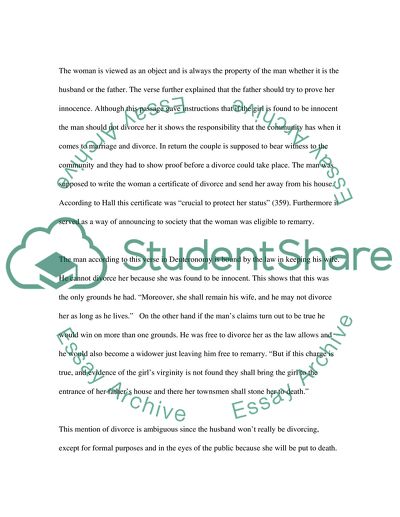Cite this document
(Divorce in the Pentateuch Essay Example | Topics and Well Written Essays - 2250 words, n.d.)
Divorce in the Pentateuch Essay Example | Topics and Well Written Essays - 2250 words. Retrieved from https://studentshare.org/religion-and-theology/1559103-divorce-in-the-pentateuch
Divorce in the Pentateuch Essay Example | Topics and Well Written Essays - 2250 words. Retrieved from https://studentshare.org/religion-and-theology/1559103-divorce-in-the-pentateuch
(Divorce in the Pentateuch Essay Example | Topics and Well Written Essays - 2250 Words)
Divorce in the Pentateuch Essay Example | Topics and Well Written Essays - 2250 Words. https://studentshare.org/religion-and-theology/1559103-divorce-in-the-pentateuch.
Divorce in the Pentateuch Essay Example | Topics and Well Written Essays - 2250 Words. https://studentshare.org/religion-and-theology/1559103-divorce-in-the-pentateuch.
“Divorce in the Pentateuch Essay Example | Topics and Well Written Essays - 2250 Words”. https://studentshare.org/religion-and-theology/1559103-divorce-in-the-pentateuch.


